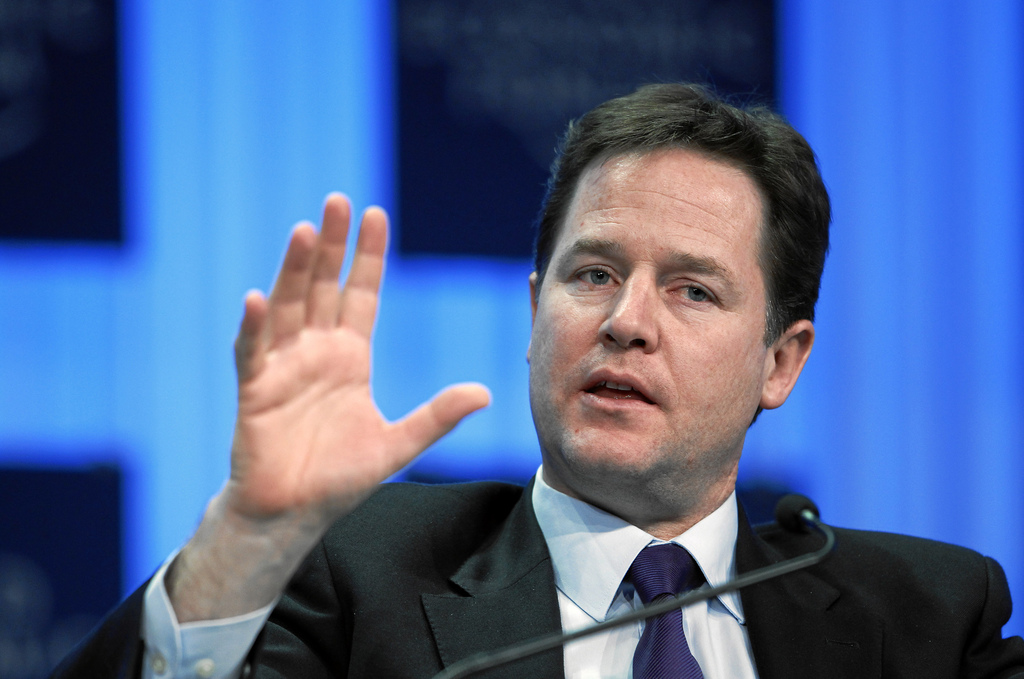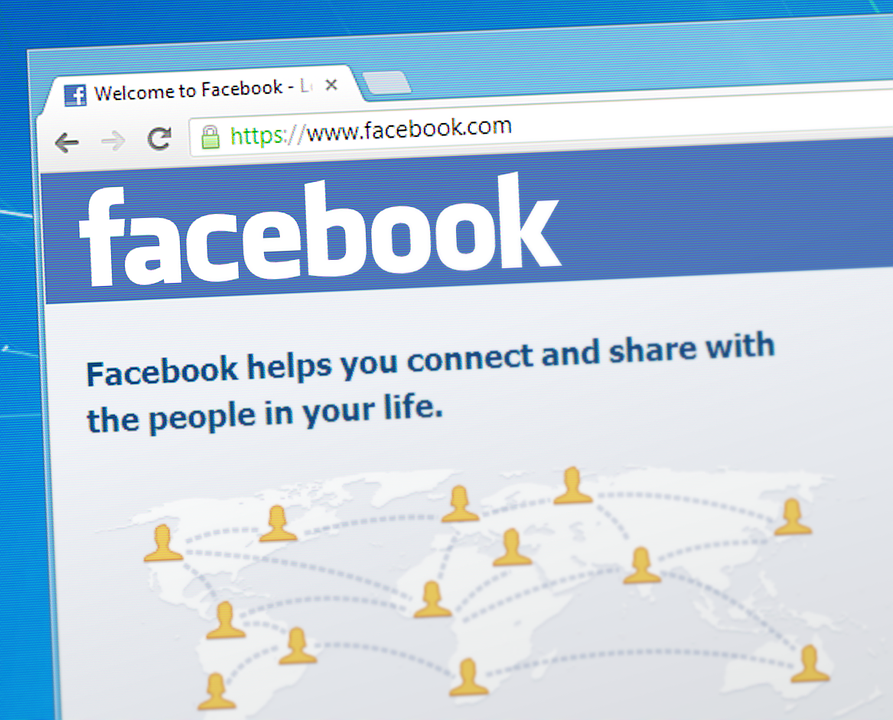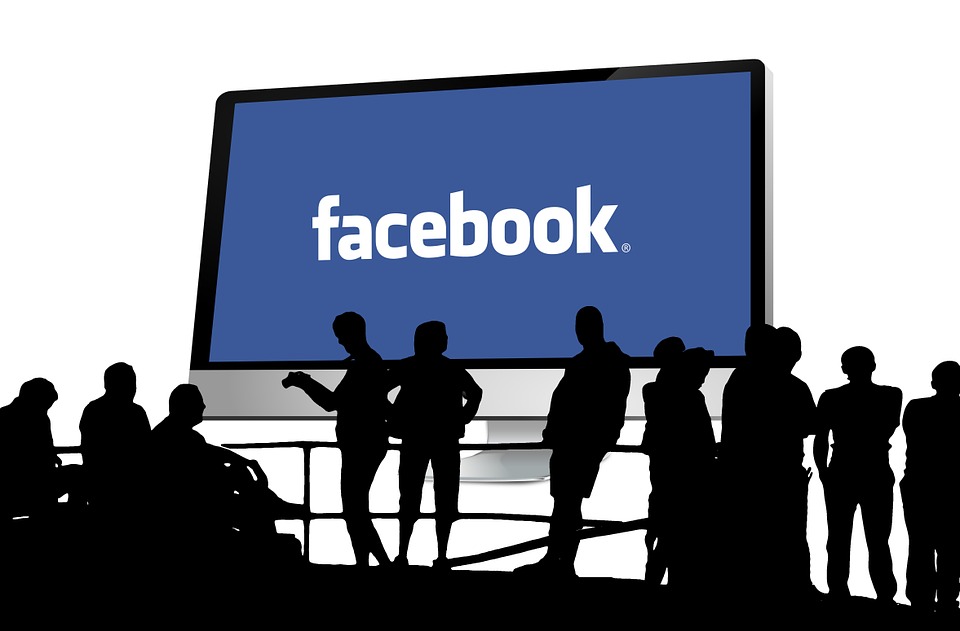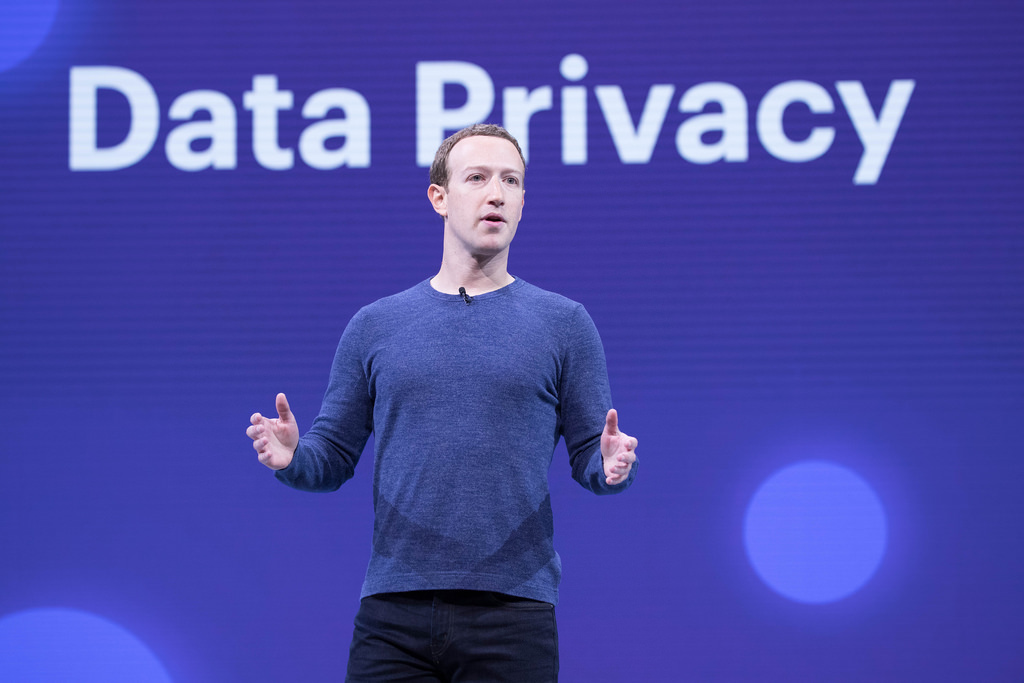It’s position could be deemed contentious, not far from a castle which housed slaves in claustrophobic, inhumane conditions. While Queen Victoria became the British monarch four years after the abolition of slavery, her reign saw the expansion of the British empire as a symbol of power, profitability and ultimately persecution.
A bust of the monarch can be seen in Cape Coast, Ghana, near to the castle where her ancestors lived in luxury, while slaves were kept in the darkness of the dungeon below, before being shipped off across the Atlantic. The castle passed between Portuguese, Swedish, Danish and British hands as a place of cruelty and contempt.
Paradoxically, in the eighteenth century British governor George Maclean oversaw the end of slave trading along the Gold Coast, yet he continued to support the ownership of slaves within the castle. Such inconsistency can be viewed as obvious disdain for those who suffered in grotesque conditions.
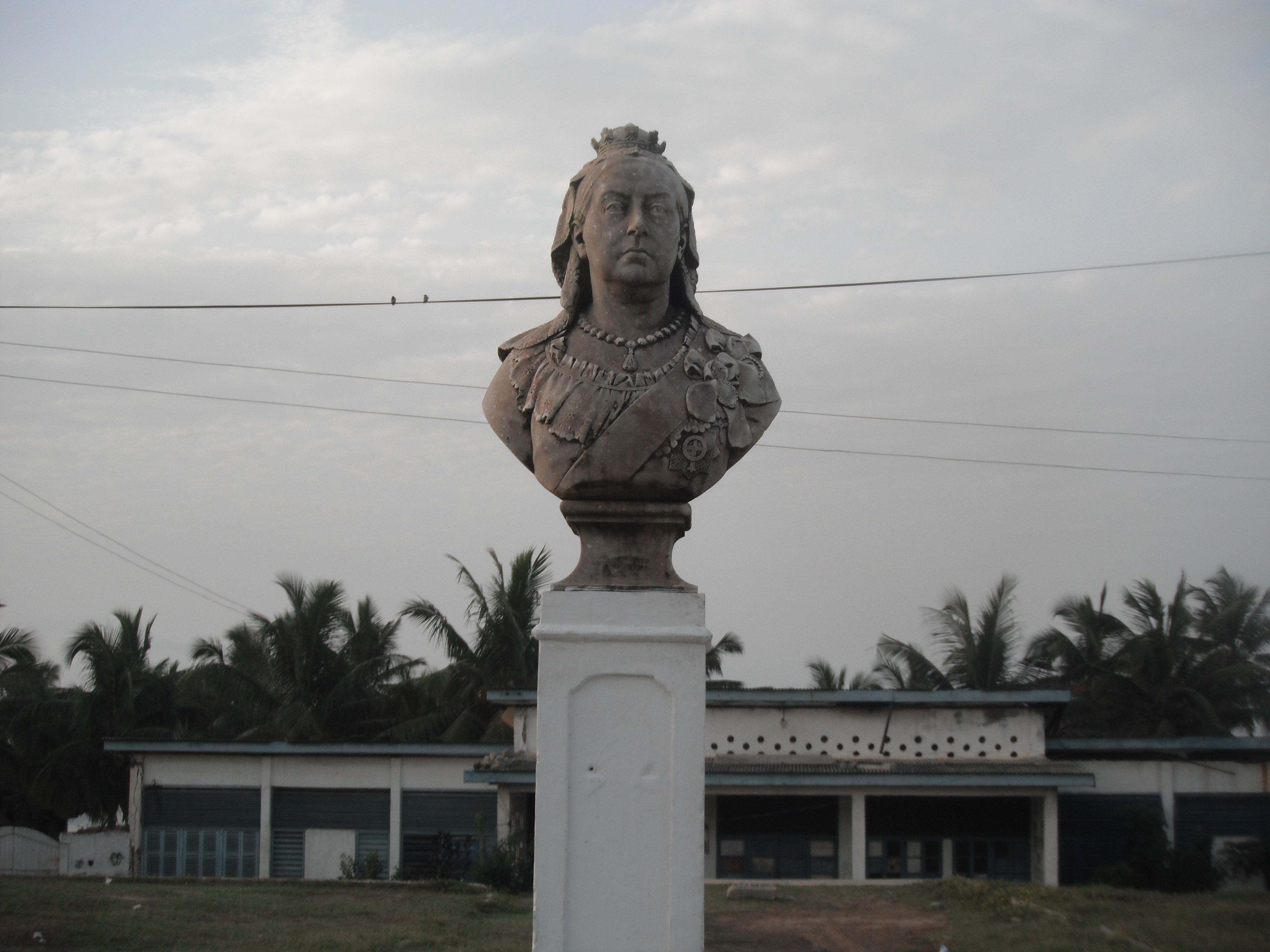
Ghanaians could be forgiven for erasing the British from their collective subconscious due to slavery, despite the fact that the colonists built infrastructure such as schools, hospitals and railways which paved the path for modernisation beyond the nation’s independence in 1957.
As Edward Colston’s statue in Bristol made headlines for being toppled and thrown into the River Avon as part of the Black Lives Matter protests, a statue of Queen Victoria in Leeds’ Hyde Park was also emblazoned with the words “slave owner”, “coloniser” and “racist”. What those words do not reflect is that Queen Victoria became a godmother of Sara Forbes Bonetta, a liberated West African slave.
For Ghanaians, the story of Cape Coast Castle and the negligent behaviour of the British slave traders is a part of their history, a reminder of how they have moved on from being subjugated to a free, independent nation.
Independence Day is an official state holiday celebrated passionately every year on March 6 with a lively parade taking place in Accra’s Black Star Square. Statues and busts are a legacy of a different era, alien to many 21st century Ghanaians even if poverty and inequality continue to leave people in horrendous conditions.
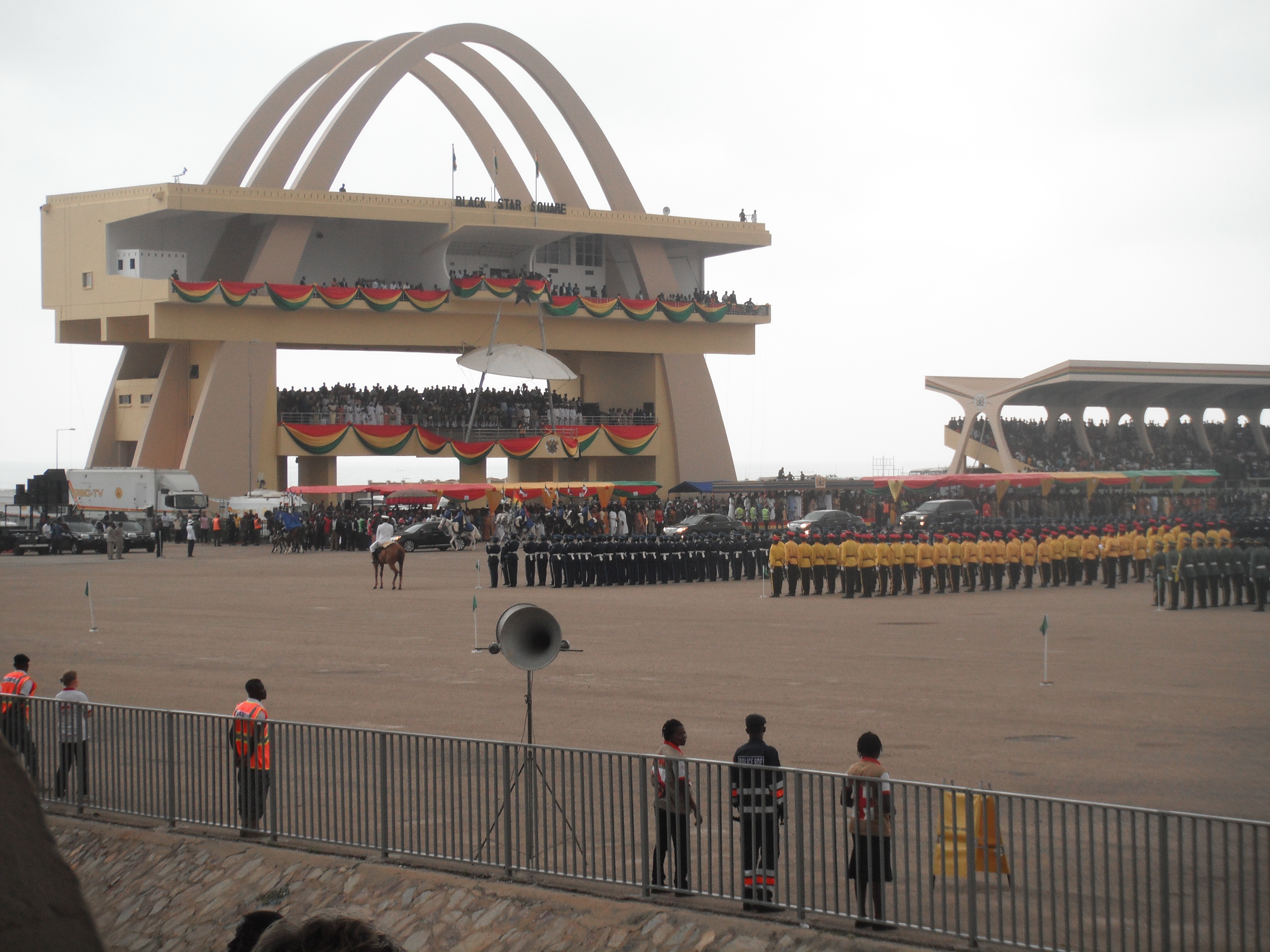
The bust of Queen Victoria is accepted as part of the fabric of Cape Coast whether people take any notice of it or not. It remains untouched.
While the age of imperialism witnessed exploitation for profit, the recent debate about statues has raised question marks over the relics of that era. Should they be removed as a glorification of slave traders or preserved as historical and cultural symbols?
Do statues in general even paint enough of a picture to be considered sufficiently historical or do they merely glorify individuals as suggested by the great man theory of history? Perhaps, they are too abstract to be considered worthy of much attention at all.
If nothing else, statues are indicators of who and what people have clung to and respected, even if this could be a particular group rather than the nation as a whole. The great man theory of history could be considered fair when Nelson’s Column is so prominent in Trafalgar Square. However, revisionism is also apparent through the recent calls for a statue of Jack Leslie to be erected.
Leslie was not a great leader or a national icon. Instead, he was a black footballer who was deprived of the chance to represent his country in the 1920s due to the colour of his skin. This would be a fitting reminder of the Black Lives Matters protests and would be a legacy to show future generations what many campaigned for at this particular period of time.
Just as Leslie could be sculpted on the back of protests, so too was the Colston statue unveiled by the mayor of Bristol in 1895 out of respect for the merchant’s work in using his wealth to provide financial support to almshouses, hospitals, schools, workhouses and churches. At the time, Colston was viewed as a philanthropist. Attitudes and times have since changed, and the statue reflects this.
Statues do not have to be reserved for the likes of Winston Churchill, Margaret Thatcher, Horatio Nelson and Mahatma Gandhi. They can be purely artistic, even inconsequential. They can also be built for lesser-known individuals. Take for example, the ‘Little Dancer Aged Fourteen’ work.

Owned by Tate, the statue depicts Marie van Goethem, a black French ballet student born in 1865. Marie’s dance career ended as a result of missing many classes. Yet despite this, her statue continues to be discussed, and was featured in a BBC arts documentary series, profiling great works of art including the likes of Michelangelo and Pablo Picasso.
Statues can therefore be appreciated as pieces of work, requiring dedication, concentration and expertise on the part of the artist. They do not have to be caught up in political protests.
Sometimes, they can even be considered in practical terms, as a meeting place for instance. Many Leeds United football fans gather next to the statue of club legend Billy Bremner on matchdays simply because it is an easily identifiable place to meet up with friends and family.
The statue is also used for mourning and respect, with flowers often being placed around the statue when someone dies, as was shown by the recent passing of Bremner’s teammate and fellow club icon Norman Hunter.
Like Colston, the Bremner statue has been targeted in the past however, albeit for completely different reasons. Huddersfield Town fans spray-painted the statue in December 2007 before a fixture between the two Yorkshire rivals.
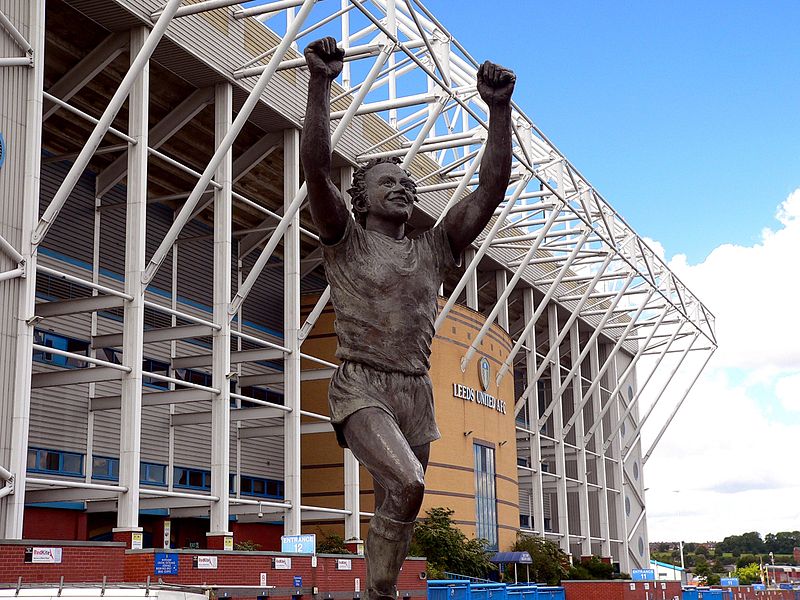
This also goes back to the great man theory of statues as Bremner is widely considered to be Leeds’ greatest ever player, a man idolised and revered by the fans. Statues at football grounds are reserved for the elite individuals, whether this is World Cup winning captain Bobby Moore outside Wembley Stadium or the ‘Holy Trinity’ of Sir Bobby Charlton, George Best and Denis Law at Old Trafford.
These Manchester United legends were joined by the greatest British manager of all time, Sir Alex Ferguson, unveiled in November 2012.
Speaking for a BBC Sport article at the time, former United captain Bryan Robson said: “When you get an honour like that from a club as big as Manchester United you know you’ve been very successful and you’ve achieved a lot more than people could ever imagine.”
Ultimately, while some statues are reserved for those deemed worthy of unwavering respect, others are purely artistic and abstract.
The recent controversy surrounding Edward Colston has provoked divide and debate. The statue has been subject to increasing controversy since the 1990s due to the connotations with slavery, yet this has now intensified with its toppling. Whether this feeling endures or not, many statues are now being considered in a different light.
The Church of England has asked cathedrals and churches to review their monuments and statues following the Colston episode, and the statue of Constantine the Great has come under fire outside York Minster by those who consider him to be a slave-owning villain.
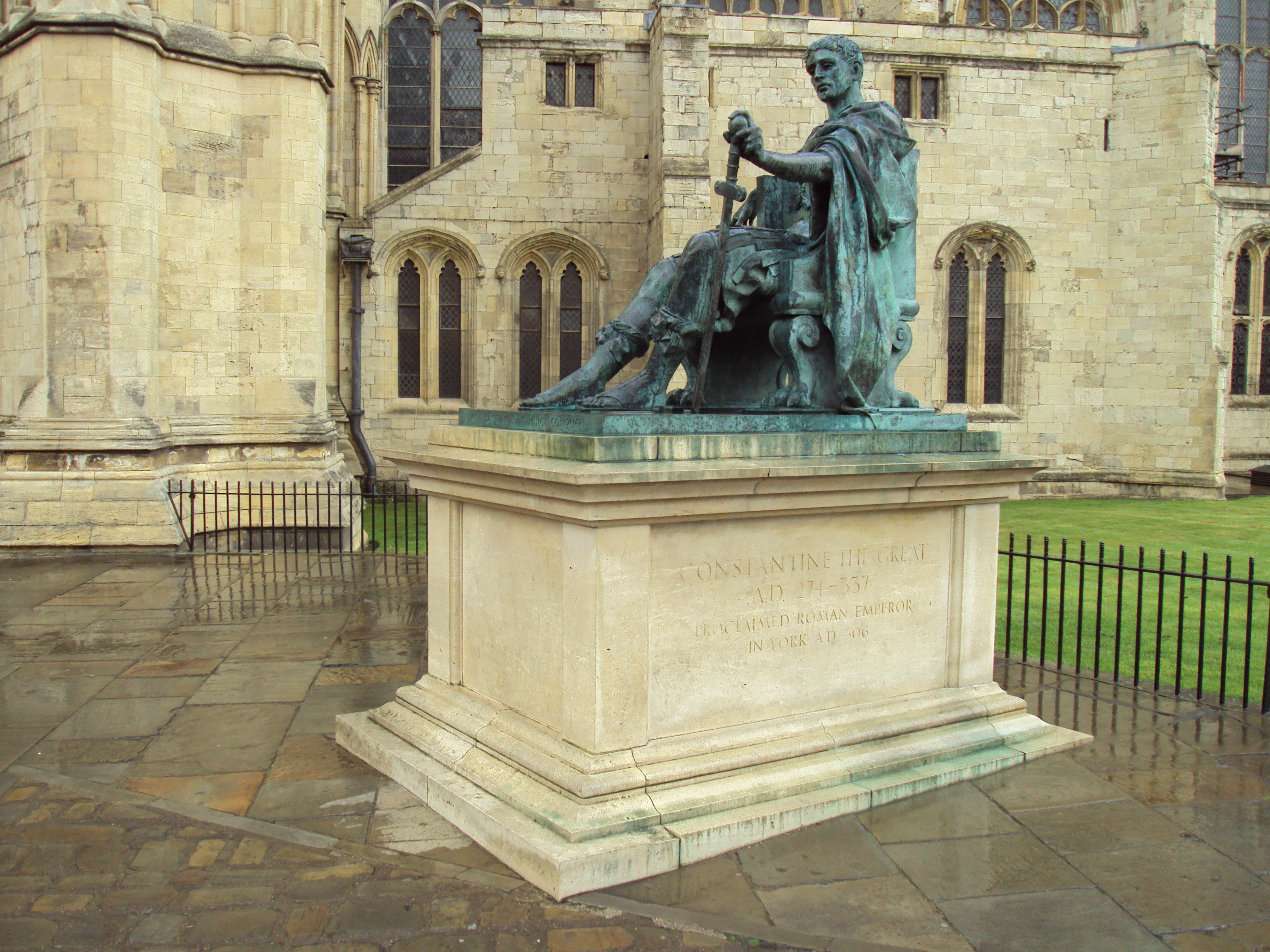
In my opinion, it has taken a global protest to arouse these heated opinions of statues. In normal circumstances, they are permanent fixtures which become part of the identity of a particular place or venue.
Thousands of visitors and tourists would have had their photos taken next to the statue of Constantine in York, many overlooking the fact he owned slaves. Statues, monuments and busts have often become attractions in themselves rather than a political expression.
Whether they are a big deal or not, it will be interesting to see which ones are commissioned following the recent debate. Statues may never be looked in the same light again following the fury which the likes of Colston and Constantine have provoked following the killing of George Floyd.
[Pictures used are labelled for reuse: Wikipedia and Flickr. Ghana pictures are my own]





















